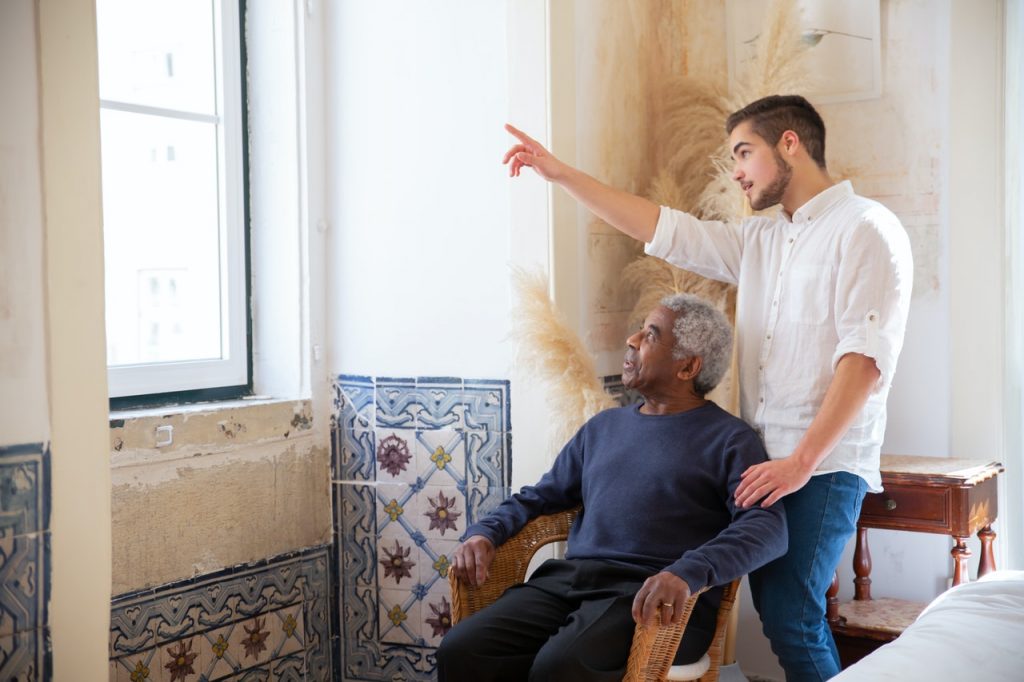The Best Ways to Ensure Quality of Life to your Assisted Living Community
The benefits of assisted living services extend beyond activities of daily living. These homes open the world of opportunities and greater freedom for seniors. That’s why millions of families move their loved ones to these homes when home care is no longer a viable option.
As a service provider, you are always on the lookout for ways to enhance the level of care in the facility. This can pose a unique challenge because of varying needs of the elderly. But ensuring quality of life in your assisted living community doesn’t have to be complex. A few simple steps can help you deliver the best experiences to all the residents in your home.
The Best Ways to Improve Resident Care:
Address loneliness

A study by the Brigham Young University found that loneliness can be as deadly as obesity or smoking. Senior isolation may encourage an unhealthy lifestyle, complicate the existing condition and affect cognition. It may also lead to higher cases of elder abuse as perpetrators take advantage of their isolation to scam, steal or injure them. Other studies show that Alzheimer’s almost doubles in lonely adults and that their mental decline was faster.
Going by these studies, addressing loneliness is one of the best things you can do in your senior living facility to ensure the quality of life. Great ways of preventing loneliness include:
· Promoting social interaction
· Encouraging a sense of purpose
· Showing them that they are loved
· Integrating physical activities like stair climbing, walking, and other age-appropriate workouts to keep the older adults in a solid mental, emotional and physical shape.
Hire enough staff
Staffing is one of the most tangible and crucial elements to ensure high-quality care. Everyone is happy when a facility has an adequate staff-to-resident ratio. But when the facility is understaffed, the team gets overwhelmed and becomes unwilling to offer assistance with activities of impaired adults. They may also become abusive out of their frustration. That’s why you need to hire adequate staff. But it's equally essential to onboard trained staff with a good grasp of residential care.

Embrace new technology
Seniors may have shied away from technology in the past, but not anymore. The baby boomer generation is now widely adopting technology to keep in touch with their loved ones, manage their finances, alert caregivers in case of an accident, etc. They are using laptops, phones, and smartwatches for daily interactions and other activities. There are many other technologies that you can embrace to ensure your assisted living residents have a better quality of life, these include:
- Personal Emergency Response System (PERS) that allows the resident to call for help with a button tap.
- Adaptable utensils to help seniors with tremors or arthritis live independently.
- GPS tracking to monitor a senior’s location and send notifications in case a memory care patient wanders off.
- Video games for mental and physical health
- Smartphone apps that offer reminders and “time to refill” updates to prevent medication errors
- IoT devices to help track critical health data
Personalize rooms
Personalization is critical, especially in memory care homes. It helps staff know the residents, their preferences, family, and special memories of travel and a well-lived life. It is also vital in the case of residents suffering from conditions like expressive aphasia and dementia. Usually, these people can’t tell their own life stories so their possessions that represent their activities, achievements, and memories can communicate about their past.
For this reason, it is a good idea to allow residents to bring some of their unique and favorite belongings and items with them as they move into the care facility. These possessions will not only aid with care but also help the residents feel at home. In addition to this, you may want to customize the rooms to fit the needs of the residents. Since no single resident has the same need as the other, it pays to understand the needs of each one of them and modify their spaces accordingly. And don’t forget the outdoors and common spaces too. A few things you can do in this regard include:
- Set the tables in the dining rooms to make the space appealing
- Create a unique outdoor space that’s fun to hang around
- Hang meaningful wall art in rooms
Provide lots of fun, social opportunities

Spending time and maintaining relationships with others is essential to a senior’s mental and emotional well-being. It can prevent depression which is common with seniors. Studies by Centers for Disease Control and Prevention show that 7 million adults in the US, 65 years and older suffer from depression each year. And while many aspects lead to depression, isolation and inactivity tend to be the biggest contributors.
Alzheimer’s Association recommends socialization to help seniors maintain brain activity. As such, providing lots of fun and social opportunities in your facility can be a great way to improve the level of care in your homes. Here are a few recommendations for social activities.
- Providing fitness classes to keep seniors in good mental and physical condition
- Encouraging seniors to explore new hobbies like oil painting, gardening, or craft for mental stimulation and to help seniors maintain fine motor skills and dexterity
- Creating spaces that encourage social activities between residents and their loved ones
- Organizing puzzle parties, group walks, film festivals, bingo nights, etc.
Make tidiness a priority
One of the main reasons seniors move from home care to assisted living is to get help with laundry and housekeeping. Providing stellar personal care services is essential, but ensuring that the rooms and surrounding area are in tip-top condition is also crucial. Assisted living homes always need to be clean to create a healthy environment for residents and caregivers. Hiring professional cleaning services can be a great way to ensure your facility stays clean. A clean facility offers plenty of benefits, including:
- A clutter-free space makes seniors mentally and physically happy
- It prevents allergies from spoiling the day for seniors
- It reduces the chances of slips and falls
- It helps seniors to avoid accidents
Emphasize providing quality meals and dining experience
Dining isn’t just an essential part of a senior’s social life in an assisted living community, it’s an important pleasure for them as well. Residents enjoy nice meals in a good dining setting. They also need well-balanced meals as part of their health care. When it comes to resident care, it is the simple things that matter, like eating what they want, when they want, and where they want.
While providing meals for the elderly, it’s vital to take note of their varying health needs. For instance, seniors with heart disease need to avoid processed meals and high-fat dairy products. Instead, they should eat high-quality proteins, healthy fats, colorful veggies and fruits, and low-fat dairy products. In addition to nutrition, you want to create an appealing dining atmosphere that makes residents eager and willing to enjoy their meals.


Sheri Bruemmer is a seasoned industry expert with expertise in growing and managing operations that support assisted living, adult foster care, and homes for the aged communities. Sheri is a certified Gerontologist, licensed Assisted Living Director, and licensed nurse as well.